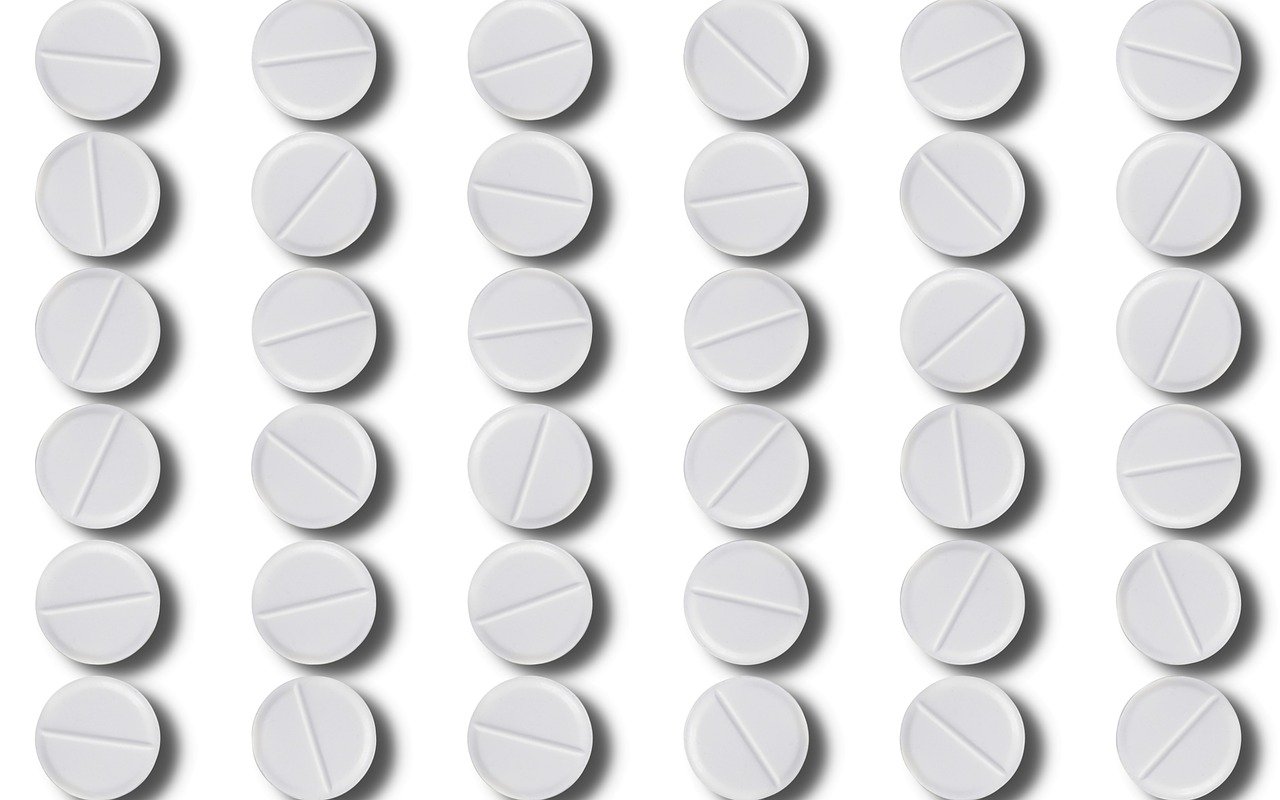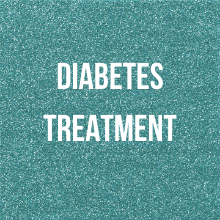Last Updated on March 10, 2025 by Alexander Sennuga
Find below a detailed discussion about diabetes treatment. Why is this topic important?
Diabetes Treatment
Each sort of diabetes above requires a special sort of treatment. Type 2 diabetes has the risk factors of an unhealthy diet, a poor lifestyle, and exercise.
Allow us to see the treatment options for type 2 diabetes.
Diabetes Treatment Type 2

It’s best to first know the fundamentals of this sort of type 2 diabetes. This then enables one to treat or manage it. Conventional treatment includes the utilisation of medication, nutrition, and the control of stress. Others are exercise, and weight reduction (including bariatric surgery). It’s necessary to figure out the subsequent professionals doing these (1, 2, 3, 4):
- doctor
- registered nutritionist/dietitian
- certified diabetes educator
In the early stages of type 2 diabetes, weight loss, and exercise can bring blood sugar levels back to normal. This way, the disease does not progress very quickly. Holistic treatments are effective in preventing additional diseases.
It’s noteworthy that there are study reports here showing that the majority of type 2 diabetes is reversible. There’s strong evidence that the disease can enter remission if it’s well-managed.
Once you are diagnosed with this disease, it’s best to start monitoring your blood sugar,
Prediabetes Treatment

Prediabetes may be a condition of higher blood glucose than normal. But the extent is, however, below the diagnostic level. This being the case, it is sensible to mention that the treatment goal is the following:
- Drive down the blood sugar level
- Prevent a situation of allowing it to progress to type 2 diabetes
What, then, are the required steps to realise this?
- You want to consult with your doctor, for all the necessary medical advice.
- Focus on making the necessary lifestyle and dietary changes.
- You should check your blood sugar regularly, as advised by your doctor and/or healthcare team.
- Eat only healthy foods and also seek advice from your registered dietitian/nutritionist.
- Take interest in your blood pressure, cholesterol level, and body weight (BMI). Get the support of your healthcare team on these.
- Research the topic of prediabetes and diabetes and get educated.
Diabetes Type 1 Treatment

Problem of Hypoglycemia
Gestational Diabetes Treatment

Why?
Medical scientists tell us that the subsequent can occur after the pregnancy:
- The mother may develop type 2 diabetes much later in life
- At birth, the baby is at risk of being very large, and can then cause a cesarean section
- The baby can develop type 2 diabetes later in life
The acceptable treatment of gestational diabetes is vital.
What then are the required steps to realize this?
The primary steps are to ensure the pregnant woman is on a healthy diet and engages in exercise. If these aren’t enough, the lady has to get on medication with the support of the doctor.
A Complete List of Diabetes Medications
Medications for type 1 diabetes
Insulin
Insulin is the most common type of medication used in type 1 diabetes treatment.
If you have type 1 diabetes, your body can’t make insulin. The goal of treatment is to replace the insulin that your body can’t make.
Insulin is also used in type 2 diabetes treatment. It’s given by injection and comes in different types. The type of insulin you need depends on how severe your insulin depletion is.
Options include:
Short-acting insulin
- regular insulin (Humulin and Novolin)
Rapid-acting insulins
- insulin aspart (NovoLog, FlexPen, Fiasp)
- insulin glulisine (Apidra)
- insulin lispro (Humalog)
Intermediate-acting insulin
- insulin isophane (Humulin N, Novolin N)
Long-acting insulins
- insulin degludec (Tresiba)
- insulin detemir (Levemir)
- insulin glargine (Lantus)
- insulin glargine (Toujeo)
Combination insulins
- NovoLog Mix 70/30 (insulin aspart protamine-insulin aspart)
- Humalog Mix 75/25 (insulin lispro protamine-insulin lispro)
- Humalog Mix 50/50 (insulin lispro protamine-insulin lispro)
- Humulin 70/30 (human insulin NPH-human insulin regular)
- Novolin 70/30 (human insulin NPH-human insulin regular)
- Ryzodeg (insulin degludec-insulin aspart)
Amylinomimetic drug
Pramlintide (SymlinPen 120, SymlinPen 60) is an amylinomimetic drug. It’s an injectable drug used before meals.
It works by delaying the time your stomach takes to empty itself. It reduces glucagon secretion after meals. This lowers your blood sugar.
It also reduces appetite through a central mechanism.
Medications for type 2 diabetes
If you have type 2 diabetes, your body makes insulin but no longer uses it well.
Your body can’t make enough insulin to keep your blood sugar levels normal. The goal of treatment for you is to help your body use insulin better or to get rid of extra sugar in your blood.
Most medications for type 2 diabetes are oral drugs. However, a few come as injections. Some people with type 2 diabetes may also need to take insulin.
Alpha-glucosidase inhibitors
These medications help your body break down starchy foods and table sugar. This effect lowers your blood sugar levels.
For the best results, you should take these drugs before meals. These drugs include:
- acarbose (Precose)
- miglitol (Glyset)
Biguanides
Biguanides decrease how much sugar your liver makes. They decrease how much sugar your intestines absorb, make your body more sensitive to insulin, and help your muscles absorb glucose.
The most common biguanide is metformin (Glucophage, Metformin Hydrochloride ER, Glumetza, Riomet, and Fortamet).
Metformin can also be combined with other drugs for type 2 diabetes. It’s an ingredient in the following medications:
- metformin-alogliptin (Kazano)
- metformin-canagliflozin (Invokamet)
- metformin-dapagliflozin (Xigduo XR)
- metformin-empagliflozin (Synjardy)
- metformin-glipizide
- metformin-glyburide (Glucovance)
- metformin-linagliptin (Jentadueto)
- metformin-pioglitazone (Actoplus)
- metformin-repaglinide (PrandiMet)
- metformin-rosiglitazone (Avandamet)
- metformin-saxagliptin (Kombiglyze XR)
- metformin-sitagliptin (Janumet)
Dopamine agonist
Bromocriptine (Cycloset) is a dopamine agonist.
It’s not known exactly how this drug works to treat type 2 diabetes. It may affect rhythms in your body and prevent insulin resistance.
Dipeptidyl peptidase-4 (DPP-4) inhibitors
DPP-4 inhibitors help the body continue to make insulin. They work by reducing blood sugar without causing hypoglycemia (low blood sugar).
These drugs can also help the pancreas make more insulin. These drugs include:
- alogliptin (Nesina)
- alogliptin-metformin (Kazano)
- alogliptin-pioglitazone (Oseni)
- linagliptin (Tradjenta)
- linagliptin-empagliflozin (Glyxambi)
- linagliptin-metformin (Jentadueto)
- saxagliptin (Onglyza)
- saxagliptin-metformin (Kombiglyze XR)
- sitagliptin (Januvia)
- sitagliptin-metformin (Janumet and Janumet XR)
- sitagliptin and simvastatin (Juvisync)
Glucagon-like peptide-1 receptor agonists (GLP-1 receptor agonists)
These drugs are similar to the natural hormone incretin.
They increase B-cell growth and how much insulin your body uses. Indeed, they decrease your appetite and how much glucagon your body uses. They also slow stomach emptying.
These are all important actions for people with diabetes.
For some people, atherosclerotic cardiovascular disease, heart failure, or chronic kidney disease may predominate over their diabetes. In these cases, the American Diabetes Association (ADA) recommends certain GLP-1 receptor agonists as part of an antihyperglycemic treatment regimen.
These drugs include:
- albiglutide (Tanzeum)
- dulaglutide (Trulicity)
- exenatide (Byetta)
- exenatide extended-release (Bydureon)
- liraglutide (Victoza)
- semaglutide (Ozempic)
Meglitinides
These medications help your body release insulin. However, in some cases, they may lower your blood sugar too much.
These drugs aren’t for everyone. They include:
- nateglinide (Starlix)
- repaglinide (Prandin)
- repaglinide-metformin (Prandimet)
Sodium-glucose transporter (SGLT) 2 inhibitors
Sodium-glucose transporter (SGLT) 2 inhibitors work by preventing the kidneys from holding on to glucose. Instead, your body gets rid of the glucose through your urine.
In cases where atherosclerotic cardiovascular disease, heart failure, or chronic kidney disease predominate, the ADA recommends SGLT2 inhibitors as a possible treatment option.
- dapagliflozin (Farxiga)
- dapagliflozin-metformin (Xigduo XR)
- canagliflozin (Invokana)
- canagliflozin-metformin (Invokamet)
- empagliflozin (Jardiance)
- empagliflozin-linagliptin (Glyxambi)
- empagliflozin-metformin (Synjardy)
- ertugliflozin (Steglatro)
Sulfonylureas
These are among the oldest diabetes drugs still used today. They work by stimulating the pancreas with the help of beta cells. This causes your body to make more insulin.
These drugs include:
- glimepiride (Amaryl)
- glimepiride-pioglitazone (Duetact)
- glimepiride-rosiglitazone (Avandaryl)
- gliclazide
- glipizide (Glucotrol)
- glipizide-metformin (Metaglip)
- glyburide (DiaBeta, Glynase, Micronase)
- glyburide-metformin (Glucovance)
- chlorpropamide (Diabinese)
- tolazamide (Tolinase)
- tolbutamide (Orinase, Tol-Tab)
Thiazolidinediones
Thiazolidinediones work by decreasing glucose in your liver. They also help your fat cells use insulin better.
These drugs come with an increased risk of heart disease. If your doctor gives you one of these drugs, they’ll watch your heart function during treatment.
Options include:
- rosiglitazone (Avandia)
- rosiglitazone-glimepiride (Avandaryl)
- rosiglitazone-metformin (Amaryl M)
- pioglitazone (Actos)
- pioglitazone-alogliptin (Oseni)
- pioglitazone-glimepiride (Duetact)
- pioglitazone-metformin (Actoplus Met, Actoplus Met XR)
People with type 1 and type 2 diabetes often need to take other medications to treat conditions that are common with diabetes.
These drugs can include:
- aspirin for heart health
- drugs for high cholesterol
- high blood pressure medications
Alternative Diabetes Treatment
There’s growing popularity of other remedies for diabetes nowadays. The explanations for this aren’t far-fetched, supported by the experience of diabetes patients. The following are the essential reasons:
- Conventional medicine tends to focus on treating only the symptoms and not the root cause of the disease.
- Medical prescriptions do cause side effects. These can cause other health issues for the patient down the road.
- Medical costs, including repeat prescriptions, can be unaffordable in poor countries. So, patients look for cheaper options.
Given these situations and other reasons, alternative medicine is becoming attractive. Additionally, natural/integrative/holistic intervention is also on the rise to tackle diseases like diabetes.
Use of Herbs

Take it or not, there is much news about the efficacy of some herbs in use to treat or manage type 2 diabetes. The most popular ones are cinnamon, fenugreek, and aloe vera.
But, as popular as they’ll be, it’s best to consult the doctor before their use for health purposes.
Natural Diabetes Treatment Methods (without drugs)
In the case of type 2 diabetes, a determined and focused patient can treat his disease without drugs. There is strong evidence of this. All it takes are intensive efforts to do and undo what’s necessary to make it happen. And down the road, some patients finally succeed in reversing the disease. In addition, many patients are ready to put it into remission, consistent with many reports.
Intermittent Fasting
Intermittent fasting may be a time-resisting pattern of eating during which a time window is for eating. The remainder of the 24-hour cycle is going to be without food. It’s a versatile way of fasting, just like the 16:8 pattern. This suggests fasting takes place during the 16 hours of a cycle, and the eight-hour window for eating. Water, tea, or coffee, but any of them without added sugar or milk, is allowed.
The mechanism of intermittent fasting is the switching of energy sources from glucose in foods to fat within the body. Through this, the pancreas and therefore the digestive system of the body are less tasked. This leads to weight loss and, of course, improved insulin sensitivity for type 2 diabetes patients.
I’m trying it under my doctor’s supervision, and it’s working for me. My fasting blood glucose has dropped from 7.2 mmol/dL (130 mg/dl) to 5.3 mmol/dL (93 mg/dl) within 2 months.
If this practice continues to be a hit, I’ll adopt it permanently!
Conclusion
Knowing all the choices for diabetes treatment is important. This is often thanks to the ever-growing trend of diabetes cases worldwide. Type 1 diabetes treatment remains the utilization of insulin. This is the medical practice for now. But in the case of type 2 diabetes and gestational diabetes, a healthy diet and, therefore, the right lifestyle are successful. Medical intervention may become necessary, however.
The recognition of other treatments is on the rise. These are the holistic, herbal, and natural approaches to treating type 2 in particular. But it’s best to consult the doctor before applying those measures.
FAQ
**Q: What are the common treatment options for diabetes?**
A: The common treatment options for diabetes include lifestyle changes, oral medications, insulin therapy, and dietary modifications. These treatment approaches are aimed at managing blood sugar levels and preventing complications associated with diabetes.
**Q: Can diabetes be managed without medication?
A: In some cases, diabetes can be managed without medication through lifestyle modifications. Regular exercise, maintaining a healthy weight, following a balanced diet, monitoring blood sugar levels, and managing stress can help control diabetes naturally.
**Q: What role does diet play in diabetes treatment?**
A: Diet plays a crucial role in diabetes treatment. A well-balanced diet can help control blood sugar levels, manage weight, and reduce the risk of complications. Foods rich in fiber, whole grains, lean proteins, and healthy fats are recommended, while sugary and processed foods should be limited.
**Q: Is insulin the only medication used for diabetes treatment?**
A: No, insulin is not the only medication used for diabetes treatment. There are various oral medications available, such as metformin, sulfonylureas, thiazolidinediones, and DPP-4 inhibitors, which can help lower blood sugar levels. The choice of medication depends on individual circumstances and the type of diabetes.
**Q: Are there any alternative treatments for diabetes?**
A: While there are no alternative treatments that can cure diabetes, some complementary therapies may help manage the condition alongside conventional treatment. These may include acupuncture, herbal supplements, yoga, and meditation. It’s important to consult with a healthcare professional before trying any alternative treatments.
**Q: How often should blood sugar levels be monitored during diabetes treatment?**
A: Blood sugar levels should be monitored regularly during diabetes treatment. The frequency of monitoring may vary depending on the type of diabetes, treatment plan, and individual circumstances. It is generally recommended to check blood sugar levels multiple times a day, especially before and after meals.
**Q: Can weight loss help in diabetes treatment?**
A: Yes, weight loss can be beneficial in diabetes treatment, particularly for individuals who are overweight or obese. Losing excess weight can improve insulin sensitivity, help regulate blood sugar levels, and reduce the risk of complications associated with diabetes.
**Q: What are the potential complications of uncontrolled diabetes?**
A: Uncontrolled diabetes can lead to various complications, including heart disease, stroke, kidney damage, nerve damage, eye problems, and foot problems. It is essential to manage diabetes effectively to minimise the risk of these complications.
**Q: Are there any specific dietary restrictions for diabetes treatment?**
A: There are no specific dietary restrictions for diabetes treatment. However, individuals with diabetes should aim for a balanced diet that includes a variety of nutritious foods. It is important to limit the intake of sugary foods, processed snacks, and high-carbohydrate meals to help maintain stable blood sugar levels.
**Q: Is it possible to prevent diabetes through lifestyle changes?**
A: While type 1 diabetes cannot be prevented, type 2 diabetes can often be delayed or prevented through lifestyle changes. Maintaining a healthy weight, engaging in regular physical activity, eating a balanced diet, avoiding tobacco use, and managing stress can significantly reduce the risk of developing type 2 diabetes.
Do you know of other methods not mentioned here to treat diabetes? Please share them in the comments section.
Very Important: Please note that all information we provide on this site is for educational purposes only. They are not for medical advice, diagnosis, or treatment. So, please consult with your doctor and/or registered dietitian or nutritionist for any professional advice. Do this before applying any of the information about your health issues.


Very useful infotmation
Thanks, Titus!
Alexander
I have found this helpful. Am Emmanuel from Malawi a founder of Diabetes Malawi association so we need to work together with you if it is possible
Hi Emmanuel, thanks very much for your kind comments.
O yes, you can work with me quite well and will look forward to that!
Thanks again!
Alexander